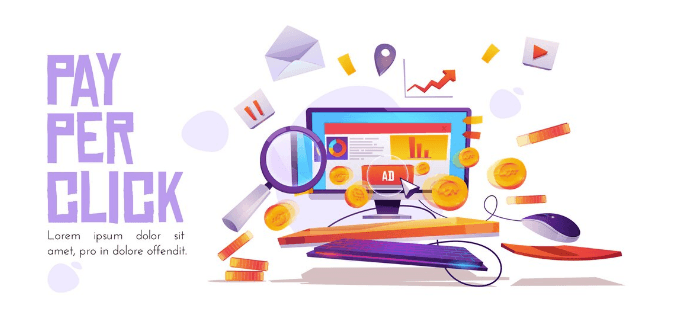- Introduction
- The Basics of Each Platform
- Selling on Etsy
- Selling on eBay
- Pros and Cons
- Etsy vs eBay
- Conclusion
- Frequently Asked Questions (FAQs)
Table of Contents
Etsy vs ebay | The Battle for the best

Introduction
Selling online is overrated. Bet you didn't expect to read that here. Yet, every day, thousands dive into the digital marketplace ocean, hoping to catch a wave of success. The truth? It's crowded, competitive, and full of sharks.
But here's where it gets interesting. The secret sauce isn't just in what or where you're selling; it's how you connect with your audience. Amidst the noise, two platforms stand out, not just for their reach but for the unique communities they harbor: Etsy and eBay.
Choosing between Etsy and eBay isn't about pitting one giant against another. It's a deeper dive into what makes your heart beat faster. Is it the handcrafted charm and personal stories behind each Etsy product? Or is it the thrilling variety and global reach of eBay?
This guide isn't just another comparison. It's a lens to help you see where your passion aligns with a platform's purpose. Because in the end, making meaningful connections in the marketplace is what turns an overrated idea into a rewarding reality. Let's explore this narrative together, shall we?
The Basics of Each Platform
Before we dive deep into the comparison and other nitty gritty stuff, let’s first understand what both these platforms are. First up…
Etsy
Think of it as your friendly neighborhood craft fair, but online. A place where artists, crafters, and vintage lovers come together. Etsy is all about the unique and personal. If your thing is handmade goods, one-of-a-kind finds, and craft supplies, Etsy's your place.
Etsy's got a vibe, a community feel. It’s the go-to for shoppers in search of unique items or personalized gifts. The platform is pretty straightforward for both buyers and sellers. Setting up an Etsy shop? Easy-peasy. It's all tailored for small, creative business owners.
eBay
Imagine a colossal global market, brimming with pretty much anything and everything. That's eBay. It covers a vast spectrum, from secondhand stuff to brand new items. You've got standard sales, sure, but also auctions. And hey, it’s not restricted to individual sellers; businesses sell there too.
eBay's big on diversity and scale. I mean, whether you're hunting for a vintage comic book, discounted electronics, or even a car, eBay's got your back. For sellers, it’s a platform with massive reach. Its auction feature? A sweet spot for rare and in-demand stuff.
So, to sum it up. Etsy: think small-scale, unique, personal. It’s about community. eBay: think big, diverse, far-reaching. It’s about variety and volume. Got it? Cool, let's dive in deeper.
Selling on Etsy
Selling on Etsy? It’s like opening your own cozy shop, but online. First, you sign up, set up your shop for free, and get crafting your unique brand story. Think of your shop as your personal showcase — it’s where your style meets your sales.
Now, listing your products. Here’s the kicker: it costs just 20 cents per listing. Not bad, right? But remember, these listings stay active for four months or until someone buys your item. Once you sell, Etsy takes a 5% transaction fee, and there's a 3% plus 25 cents payment processing fee. Keep these in mind when pricing your items.
What sells best on Etsy? Handmade or vintage items and craft supplies. If you're into making jewelry, unique home decor, or even designing digital art, you're in luck. Buyers flock to Etsy for these personal touches they can't find anywhere else.
And the community? Imagine a bustling marketplace where everyone supports each other. Etsy’s forums and teams are just that — spaces to learn, share, and grow your business alongside other creatives.
Lastly, getting paid. Etsy makes it straightforward with several options to manage your earnings. Most importantly, make your customer service game strong. Respond to queries, ship on time, and handle any issues promptly. Happy customers often mean repeat business and lovely reviews.
So, to wrap it up: Etsy's ideal for the creatives looking to sell unique, personal items. Start with a clear idea, keep an eye on your costs, play to your strengths, and connect with the community. That's your recipe for making it on Etsy.
Selling on eBay
Selling on eBay? It’s like opening your shop in a giant global mall. First step, create your account. Boom, you're in. Now, you can start listing. Got something to sell? Snap a photo, describe it, choose between an auction or a fixed price, and post it. Easy as pie.
Here's the scoop on costs. Listing is free for your first 50 items each month. Sold something? eBay takes a cut, about 10-12% of the final sale price, depending on what you’re selling. Remember, if you list more than 50 items, there are fees for that too.
What flies off the virtual shelves on eBay? Just about anything. Electronics, collectibles, clothes – you name it. If you've got it, someone out there probably wants it. New or used doesn’t matter. That’s the beauty of eBay.
The crowd? It's diverse. Because eBay’s global, your stuff can reach people all over the world. That's a lot of eyeballs on your items. Yet, it also means more competition. Stand out by snapping clear photos, writing honest descriptions, and offering good customer service.
Payments are simple. eBay helps you set up to get paid directly to your bank account. Smooth and straightforward.
Shipping? You're in charge. Fast shipping and careful packaging can earn you stellar reviews. And on eBay, good reviews are gold.
So, to keep it short: eBay's your spot if you want to reach a big audience, have more flexibility with auctioning or setting prices, and don’t mind a bit of competition. Just remember to stay clear and honest with your listings, and you’ll do great.
Pros and Cons
Alright, let's talk pros and cons – starting with Etsy.
Etsy Pros:
- Niche Market: Etsy's a haven for unique, handmade, and vintage items. It's the go-to for buyers hunting for these gems.
- Community: Etsy's bustling with supportive, like-minded creatives. Plenty of room for collaboration and learning.
- Simplicity: Setting up an Etsy shop? Piece of cake. The platform's designed to be user-friendly.
Etsy Cons:
- Product Limitations: Only handmade, vintage, and craft supply items can fly here. If your product doesn't fit, tough luck.
- Competition: It's a vibrant market, which means plenty of competition. Standing out is critical.
Now, let's focus on eBay.
eBay Pros:
- Diversity: eBay’s huge. From vintage books to brand new tech, it’s got everything. You can sell just about anything.
- Reach: eBay's everywhere. List an item and it could reach eyes across the globe.
- Flexibility: Auctioning or setting a fixed price? Your call.
eBay Cons:
- Fees: The costs can build up. Listing above 50 items isn’t free, and then there's a cut on your final sale price.
- Competition: With great reach comes great competition. With millions of listings, making your product shine takes work.
Etsy vs eBay
Choosing where to sell online can feel like picking a favorite ice cream flavor — tough but tasty. Etsy and eBay are two giant scoops in the world of online selling, each with its own flavor.

Let's dive into a head-to-head comparison to help you choose where to set up shop.
Feature | Etsy | eBay |
| Main Focus | Handmade, vintage items, and craft supplies. | Wide range, from brand-new tech to used goods and collectibles. |
| Fees | $0.20 listing fee (valid for 4 months), 5% transaction fee, plus payment processing fees. | Free for the first 50 listings per month; seller fees vary after that. |
| Audience | Buyers looking for unique, handmade, or personalized items. | Broad, global audience with diverse interests. |
| Community | Strong, with a focus on supporting creatives and small businesses. | Large and varied, without as strong a focus on community. |
| Selling Model | Fixed price listings. | Options for auction or fixed price listings. |
| Ease of Use | User-friendly for newcomers. | Slightly steeper learning curve but manageable. |
| Payment Options | Direct checkout, Etsy Payments, PayPal. | Direct to bank account, PayPal, among others. |
| Reach | Niche market, less global reach compared to eBay. | Extensive global reach, higher traffic. |
In short, if you're into crafting, art, and vintage goods, and value community feel, Etsy’s your jam. However, if your treasures vary widely and you crave a bigger stage, eBay might be right up your alley. Both platforms have their perks, so your choice should hinge on what you're selling and how you want to connect with buyers.
Conclusion
At the end of the day, both Etsy and eBay offer up their own unique flavors. So, it's less about which one is "best", and more about what suits you and your products.
Etsy can't be beat if you're making handmade goods, peddling vintage items, or if you thrive in a community-driven marketplace. But if you've got a ton of stuff to sell, from tech to t-shirts and everything in between, you might find eBay to be a better fit.
The key isn't in choosing a platform. It's knowing your products, audience, and your own preferences. Once you've got these nailed down, you're golden.
Frequently Asked Questions (FAQs)
Can I sell on both Etsy and eBay at the same time?
It's possible to sell on both platforms simultaneously to broaden your audience. However, consider the distinct interfaces, policies, and fees involved.
Are there alternatives to Etsy and eBay?
Absolutely! Depop, Poshmark, and Mercari are popular for clothing, while Amazon and Bonanza are suited for a wide variety of items.
How does shipping work on Etsy and eBay?
Both platforms allow you to add shipping costs to your listings. You'll need to package and send the product once a purchase happens.
Do I need business licenses to sell on Etsy or eBay?
It depends on your local and state regulations, as well as the scale of your operations. Always consult a legal expert for advice.
Table of Contents
- Introduction
- The Basics of Each Platform
- Selling on Etsy
- Selling on eBay
- Pros and Cons
- Etsy vs eBay
- Conclusion
- Frequently Asked Questions (FAQs)



